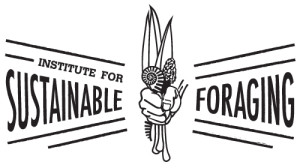WHY YOU, WHY US, WHY NOW?
The rise in popularity of foraged goods continues unabated, driven both by the enthusiasm of personal foragers who enjoy the experience of gathering unique woodland foods and the desire of chefs to work with seasonal and genuinely “American” ingredients. This increase in foraging continues to raise questions about the sustainability of these wild food resources, particularly in cases where they are not being harvested according to known best practices for protecting their ongoing role in our forest ecosystems and the great American cookbook. Furthermore, there is little extant scientific research that examines various harvesting methods and their impact on these unique resources over time.
The Institute for Sustainable Foraging was established in response to these growing concerns. We have endeavored to combine the best available science with the deepest field experience and observations in order to create a “Certified Sustainably Foraged” program. This program allows consumers and foragers alike who have an interest in the conservation of non-timber forest products (NTFPs) to build a culture of responsible use with the legacy of these unique and storied foods at its heart.
By upholding the standards and practices associated with the ISF program for a specific product (e.g. ramps), an entity can be granted “certified” status by the Institute allowing them to use our unique seal on their product, thereby distinguishing it as “Certified Sustainably Foraged.” A third party audit of the entity working to acquire certified status will be required to verify their compliance with the standards and practices set forth by the Institute.
The Institute understands that some standards and practices will need to be dynamic in order to adapt to new scientific findings and field observations. It also recognizes that the urgency for a certification protocol is greater for some products than others. For a variety of reasons, the ISF has decided that its flagship certification program will verify foraging entities that harvest Allium Tricoccum, commonly known as ramps or wild leeks.
